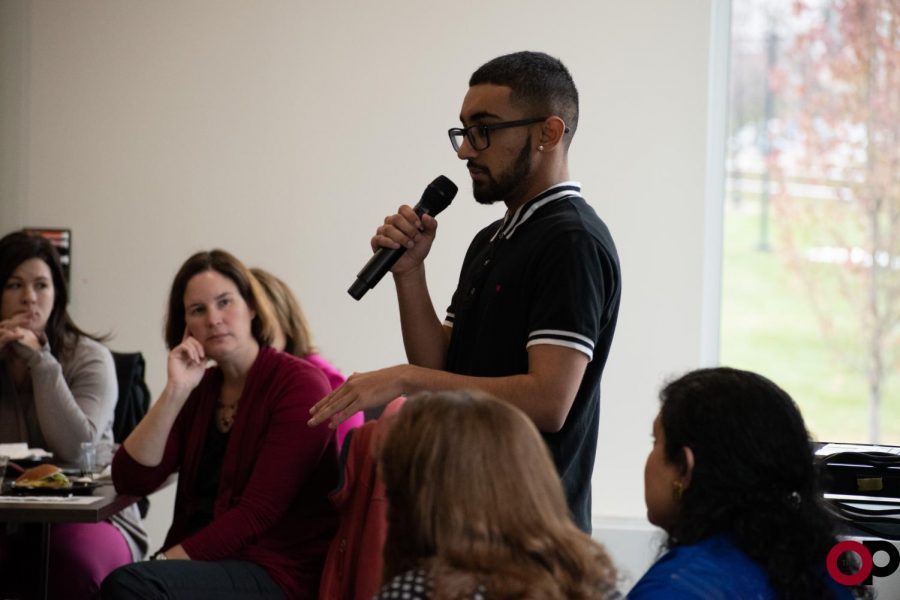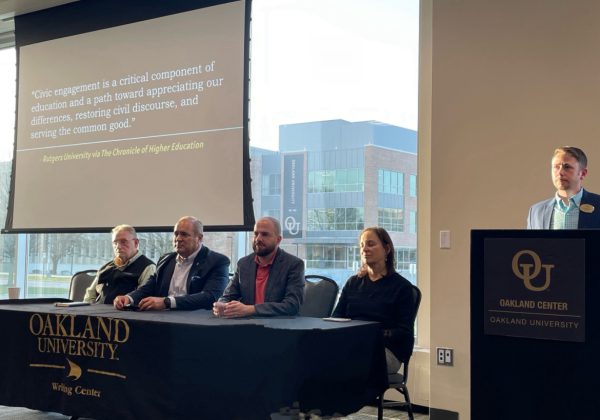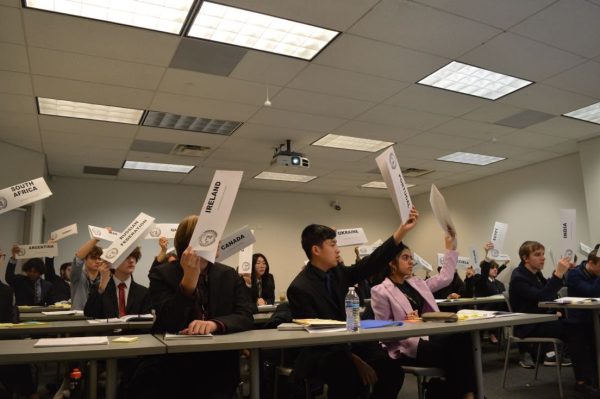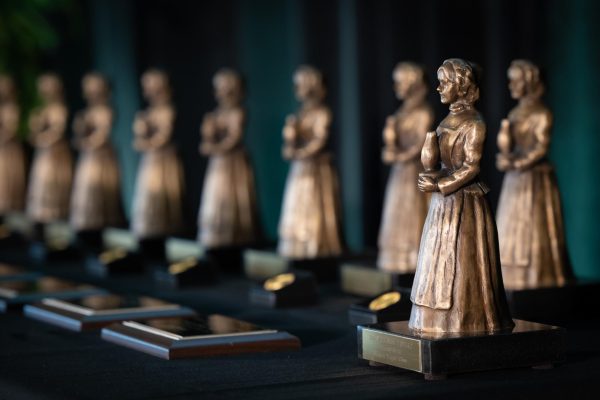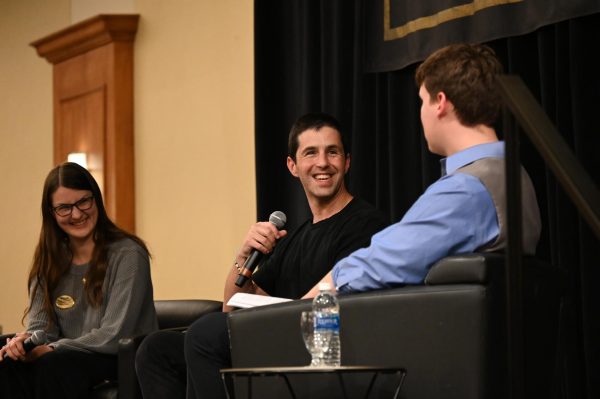Transgender Day of Remembrance panelists talk support vs. tolerance
Jay Amin tells his story of coming out and finding support during Transgender Day of Remembrance on Wednesday, Nov. 20.
At Oakland University, a day of remembrance for those lost to anti-transgender violence becomes a beacon of hope for support and alliance.
The Transgender Day of Remembrance (TDOR), which honors the memory of those who have passed due to transphobic prejudice and violence, occurs annually on Nov. 20. The day was first recognized by Gwendolyn Ann Smith in 1999 after the murder of Rita Hester, a highly visible member of the transgender community.
At OU, students were invited to join their peers in a panel and discussion about being transgender, the problems transgender people face and how to be a supportive ally.
Grace Wojcik, coordinator for the Gender and Sexuality Center (GSC), said she knows this day can be a difficult, triggering day for LGBTQIA+ people, so this event’s purpose is to spread more visibility to those who may be struggling.
“For a event like Transgender Day of Remembrance, which is about honoring the folks that have passed on, we really wanted to focus a little bit on trans-resilience instead of just the negative side,” she said.
Wojcik said the audience for the annual event is typically made up of mostly non-transgender people. So, this event helps give allies the tools and the information to be positive advocates for others.
Jay Amin, a 19-year-old transgender man, was one of the panelists during OU’s TDOR. During the panel, he talked about his story of coming out, his struggles with anxiety, depression and finding support from his family, friends and doctors.
“I was stuck in a body that I wasn’t meant to be in,” Amin said. “Therapy played a big role in coming out and starting my transition because my pediatrician was literally the only medical person who talked to me.”
His pediatrician was Dr. Maureen Kelly, who has been practicing pediatrics for 26 years. She said her job as a pediatrician is to make sure her patients are, “happy between their ears.” Jay definitely was not.
Though she didn’t receive any training as a medical student on working with transgender individuals, she was quick to realize what the cause of Amin’s depression and anxiety was.
As one of the first people to discuss gender identity with Amin, she was able to provide him with the vocabulary to describe how he was feeling and provide the steps and support needed to help him.
During the panel, Amin stressed the difference between being supportive and being tolerant. He said support comes from within and is about learning how to better other people’s lives.
“Support means you’ll take the time out of your day to go and learn something new about someone’s needs,” he said. “Whereas tolerance, anybody can just be okay with it.”
Amin gave an example of this tolerance: when he comes out to someone and they say, “OK, I don’t care,” or, “That’s OK, I don’t have a problem with that.”
His mother, Tejinder Gill, said education is the key to be a supportive ally to the transgender community. Even learning a few phrases could really help others.
“The common thing between all of us, no matter what race you are, where you come from, what color you are, what identity you have is that we’re all human beings,” she said. “Be an ally in whatever capacity you can be.”


